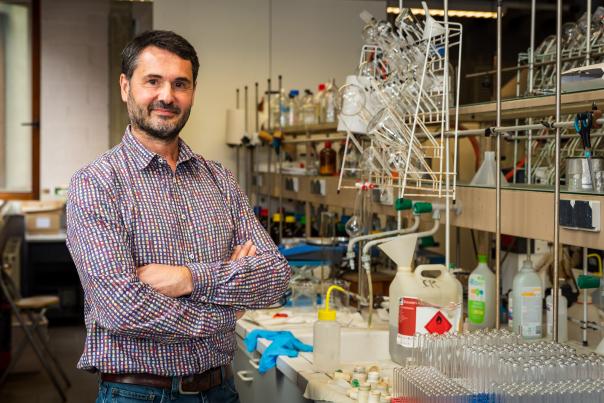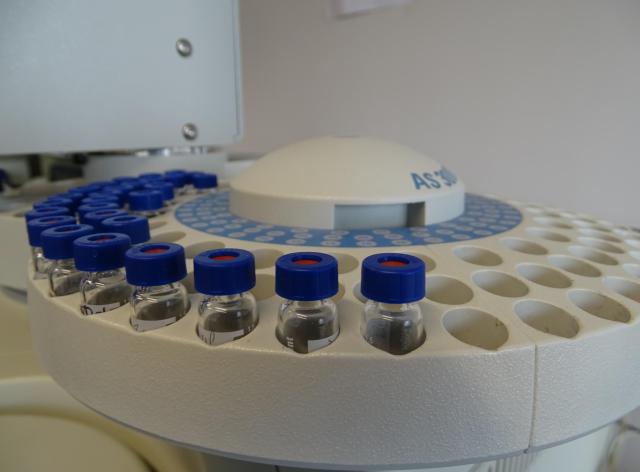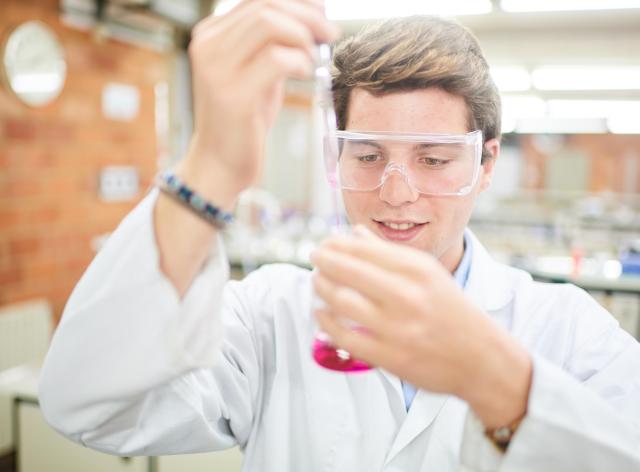The CBO specializes in organic chemistry in general, and more particularly in glycosciences for the multi-step synthesis of organic molecules or molecular probes aimed at various applications (biochemistry, virology, bacteriology, medicinal chemistry, green chemistry and catalysis...)
.
Developer (PI) | Stéphane Vincent
Stéphane Vincent is also a member of the NISM and NARILIS Institutes.

The main molecules synthesized in this laboratory are: glycoconjugates, organophosphorus and organofluorine derivatives, nucleosides and glycolipids. Interface topics with medicinal chemistry have led Prof. Vincent's laboratory to synthesize heterocyclic drug-like molecules or beta-lactam antibiotics. Syntheses of dendrimer-like derivatives centered on different molecular "cores" have also been developed: mainly fullerenes (C60), pillararenes, calixarenes and porphyrins.
At the interface with enzymology and biocatalysis, the CBO also manipulates proteins either for chemo-enzymatic synthesis or for studies of inhibition or mechanisms of enzymatic reactions (glycosyltransferases, glycosidadases, mutases, kinases, epimerases etc...). Enzyme activity assays are routinely developed using a variety of technologies.
The laboratory is currently staffed by 7 PhD students, 4 post-doctoral researchers and a part-time technician. A full-time technician assigned to UCO is in charge of all equipment maintenance. Since the laboratory's inception, 10 PhD students and 19 Master's students have completed their theses, and 15 post-docs have spent at least a year in the laboratory.
Know-how and methodologies
Organic synthesis
Our laboratory specializes in the multi-step synthesis of complex glycoconjugates: nucleotide-sugars, glycofullerenes, glycolipids and functionalized carbohydrates.
Given the biosynthetic pathways we target, we also specialize in phosphorus and fluorine chemistry. Thus, in addition to the rational design of inhibitors, new synthetic methods are also developed in the laboratory.
The laboratory is fully equipped to carry out multi-step organic syntheses, including all the necessary analytical tools (NMR, HPLC-MS, IR, polarimetry).
For purification of the final polar molecules, the laboratory is equipped with 2 HPLC systems (analytical and semi-preparative).
Enzymology
The laboratory can develop its own inhibition assays, which are performed on microtiter plates (fluorescence, UV or luminescence polarization) or directly by HPLC.
Collaborations also exist for protein crystallization, docking studies and ITC experiments. Enzymes are cloned and overexpressed in the Biology Department of the University of Namur (Research Unit in Microorganism Biology - URBM).
Research topics
Tuberculosis
New strategies to treat tuberculosis: towards inhibition and mechanistic studies of galactofuranose biosynthesis.
Glycoclusters
Glycofullerenes as inhibitors of glycosyltransferases and as molecules preventing bacterial adhesion.
Antivirulence
Synthesis of inhibitors of the LPS (lypoPolySaccharide) biosynthesis pathway: towards antivirulence molecules.
Biosensor for detection (FRISBY project)
Rapid and reliable identification of Streptococcus B at delivery (Fast and Reliable ultra-sensitive Identification of Streptococcus B at deliverY - FRISBY).
The FRISBY (BIOWIN) project aims to develop an ultra-sensitive Streptococcus B detector in collaboration with Coris BioConcept, Lambda-X, the Centre Hospitalier de Liège and the University of Liège.
Composition of the research team
Promoter (PI)
Stéphane Vincent is also a member of the NISM and NARILIS.
Other members
Researchers
Guillaume Brulay, Emilie Lesur, Vivian Lioret, Dmytro Strilets (C2W) and José Ignacio Veytia Bucheli;
Assistants and PhD students
Marine Lacritick (Assistant), Rym Yahia Boudhar and Jenny Ha (PhD students).
Master's students
Juliette Liégeois and Mathis Rion.



